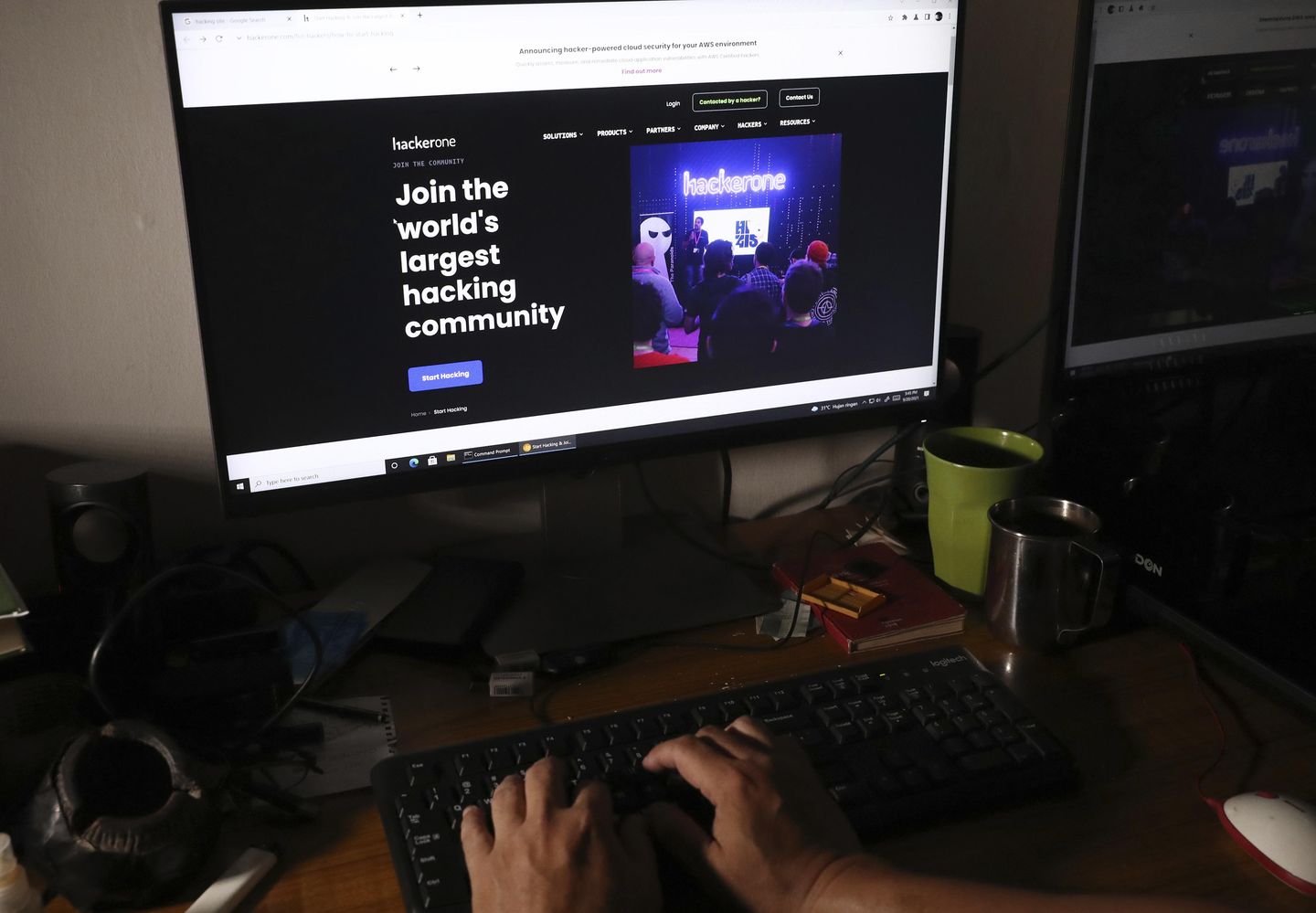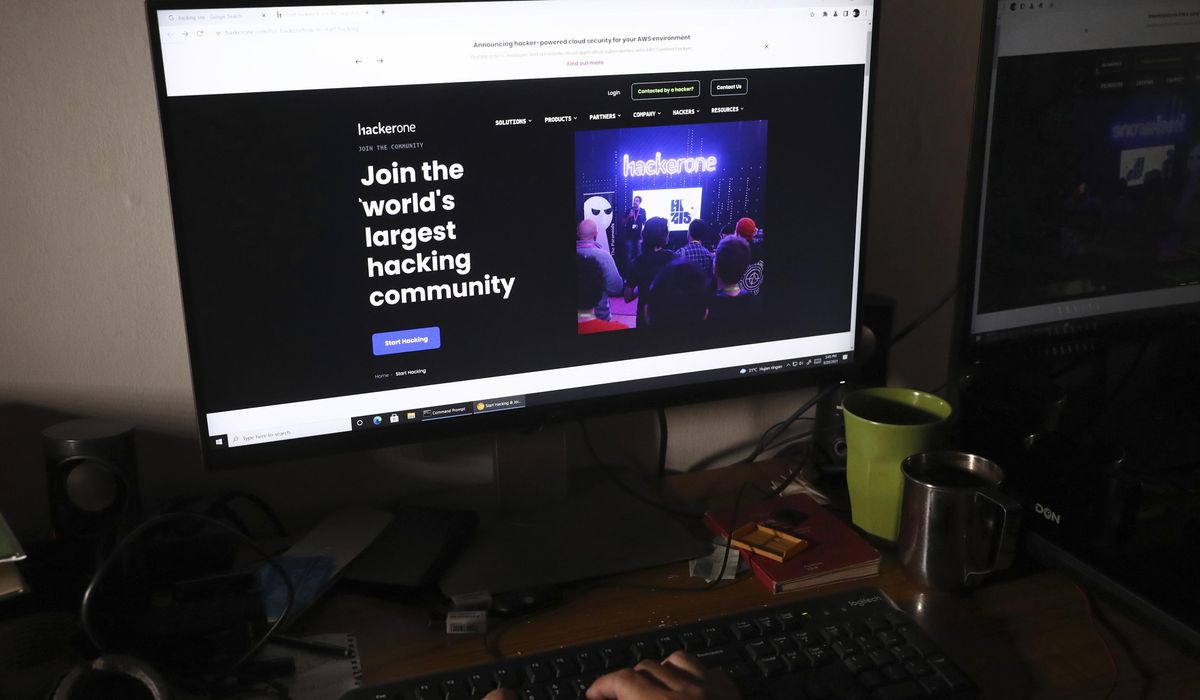

The Chinese government recently announced it now leads the world in upgrading its wired infrastructure, and security analysts are warning the new Internet Protocol Version 6 will only increase the danger from Beijing‘s state hacking operations.
Han Xia, chief engineer at the Ministry of Industry and Information Technology, said Oct. 11 that in China the number of applied addresses for IPv6, as the new protocol is called, ranks first in the world, state media reported. Internet communications protocols are used to identify and locate computers and networks, and route traffic throughout the global network. New IPv6 will better support the emerging “internet of things.”
“What it means: Prepare for cyberattacks out of China to be bigger, harder to block and harder to track,” said a cybersecurity analyst who asked to remain anonymous to protect his privacy.
Currently, searching for IP addresses behind malicious cyber activity and then blocking them is a commonly used security tool. With the new IPv6, Chinese state-sponsored hackers can change IP addresses whenever they are blocked — with help from state-owned telecommunications providers.
While still developing and carrying some security vulnerabilities, IPv6 is replacing the current IPv4 standard in the global Internet infrastructure.
“There are still vulnerabilities being ironed out that attackers can abuse, and the Chinese are definitely aware of this,” the security expert said.
One flaw is that IPv6 Internet traffic is being “tunneled” through IPv4 networks. The practice provides cyberattackers with an easy hole to penetrate computer networks.
The new protocol comes with one major difference — massively larger numbers of internet addresses.
Currently, network administrators use address-blocking tools to prevent hackers from getting inside networks under the current protocol.
When a hacker is identified, the address is blocked, and it currently is difficult to continue attacking with a new IPv4 address. The reason is because the 4.3 billion IP addresses available under IPv4 are relatively scarce, have run out and are in high demand, even for state-sponsored hacking groups like those using a state-owned telecommunications firm such as China Unicom.
The new IPv6, however, comes with 340 undecillion IP addresses — that’s 340 trillion trillion trillion.
“That’s actually a good thing in mature, secure networks controlled by good-faith actors. But it’s a bad thing in networks controlled by China,” the security expert said.
The IP address bonanza created by the new protocol will be a boon for state hackers, since the military and intelligence teams conducting cyberattacks can use as many addresses as needed for attacks. So when Microsoft or another software leader puts a hacker’s address on a global blacklist, the state-sponsored groups will simply move to a new address provided by the state-run providers.
This will make the security methods used in detecting, tracking and blocking cyberattacks useless against sophisticated Chinese or Russian government cyberattacks.
“The Chinese know this. That’s one of the reasons why they’re pushing so hard for putting the whole country exclusively on IPv6,” the expert said.
China‘s IPv6 infrastructure also will boost domestic surveillance of Chinese citizens. With the introduction of IPv6, spying will be easier and more targeted.
Currently, IPv4 requires a single household to share an Internet address. Under IPv6, state surveillance will be capable of distinguishing between individual devices — handhelds, laptops and tablets — connected to the internet in a single household.
With so many addresses available, each device can be given its own address and one of the major methods currently used to stop cyberattacks will vanish.
New methods for intrusive surveillance will emerge as governments seek to control populations.
China is considered one of the most wired surveillance states in the world, carrying out massive domestic spying operations against its citizens.
For the United States, there are concerns among security analysts that the Russian government has shared the list of 16 critical U.S. infrastructures President Biden gave to Russian President Vladimir Putin at their June summit, in a bid to warn Moscow against targeting the infrastructures.
Critics say giving the Russians — and possibly the Chinese — such a list would provide a blueprint for foreign military hackers on how to electronically take down the United States in a future conflict.
China‘s Communist Party is the problem
Former State Department policy planning expert Miles Yu says the problem facing the United States from China is simple: It is the threat posed by the Chinese Communist Party.
“What should Americans do today about Communist China? Tell the truth. Always,” the China-born Mr. Yu said in a speech in San Jose Sunday.
Worsening U.S.-China relations are not the fault of the Trump administration or anti-communist conservatives, Mr. Yu argued.
“The Chinese Communist Party is the problem. Its ideological hostility toward the United States is based on a fundamental antagonism toward freedom, especially freedom for Chinese people,” said Mr. Yu, who worked as the senior policy adviser to then-Secretary of State Mike Pompeo during the Trump administration.
Chinese propaganda organs constantly assert that tensions between Washington and Beijing are due to America’s Cold War rhetoric and thinking.
However, Mr. Yu says, it is China‘s ruling communist party that seeks to frame its foreign policies as built on a Cold War-conditioned epic “struggle” between two political and ideological systems.
“The idea of a new ‘Cold War’ is not about U.S. ‘rhetoric.’ It’s never been U.S. policy,” Mr. Yu says. “Hawks and doves come and go in Washington. But the very existence of the free United States is seen as an existential threat by the CCP.”
One example can be seen in China‘s confrontation of American officials in Anchorage, Alaska in March. During the meeting, veteran diplomat and CCP Politburo member Yang Jiechi and former Foreign Minister Wang Yi lectured Secretary of State Antony Blinken and National Security Adviser Jake Sullivan on what they asserted were the evils of capitalist, democratic systems.
The Chinese did not focus on specific American policy. Instead, their complaints focused on the entire U.S. democratic political system that they claimed is inferior to China‘s Marxist-Leninist system, Mr. Yu said.
“That kind of Cold War rhetoric is right out of the debates between Soviet General Secretary Nikita Khrushchev and Richard Nixon in Moscow back in the 1950s,” he said.
Mr. Yu said Americans who “blame America first” regarding ties to China are ignoring the reality that the United States is the leading defender of freedom and democracy.
“What was most disheartening about Anchorage, though, was that America didn’t punch back hard enough,” Mr. Yu said. “Maybe because of ‘woke’ politics and cancel culture, our own representatives didn’t have the confidence to stand up for America, and for freedom-loving people everywhere.”
Mr. Yu said leaders in the Trump administration first and foremost defended the United States and appealed to what is great in the country.
“We spoke up for the Chinese people, from Hong Kong, to Tibet, to Xinjiang, to the persecuted house churches, to the Falun Gong practitioners and everywhere in between,” he said.
Mr. Yu said adopting new, tougher policies toward China that upended “a 50-year, wrong consensus in Washington that the Chinese Communist Party would embrace democracy if we just engaged at all costs” was not easy.
However, the Trump administration recognized reality and fought against deeply-entrenched interests that included “paid Beijing proxies and guanxi brokers” — a reference to China‘s powerful lobbyists and others who tried to influence U.S. policies in Beijing‘s favor.
The Trump administration countered the trend and rallied the free world to its side in recognizing the threat from China. “It was a crowning achievement,” Mr. Yu said.
Mr. Yu dismissed critics who said the Trump policy team on China had an “attitude,” not a policy.
“That’s not true,” he said. “We had a China policy with an American attitude based on American values. We had moral clarity, straight talk, confidence and deep beliefs in American exceptionalism and every human being’s inalienable rights.”
• Contact Bill Gertz on Twitter at @BillGertz.
